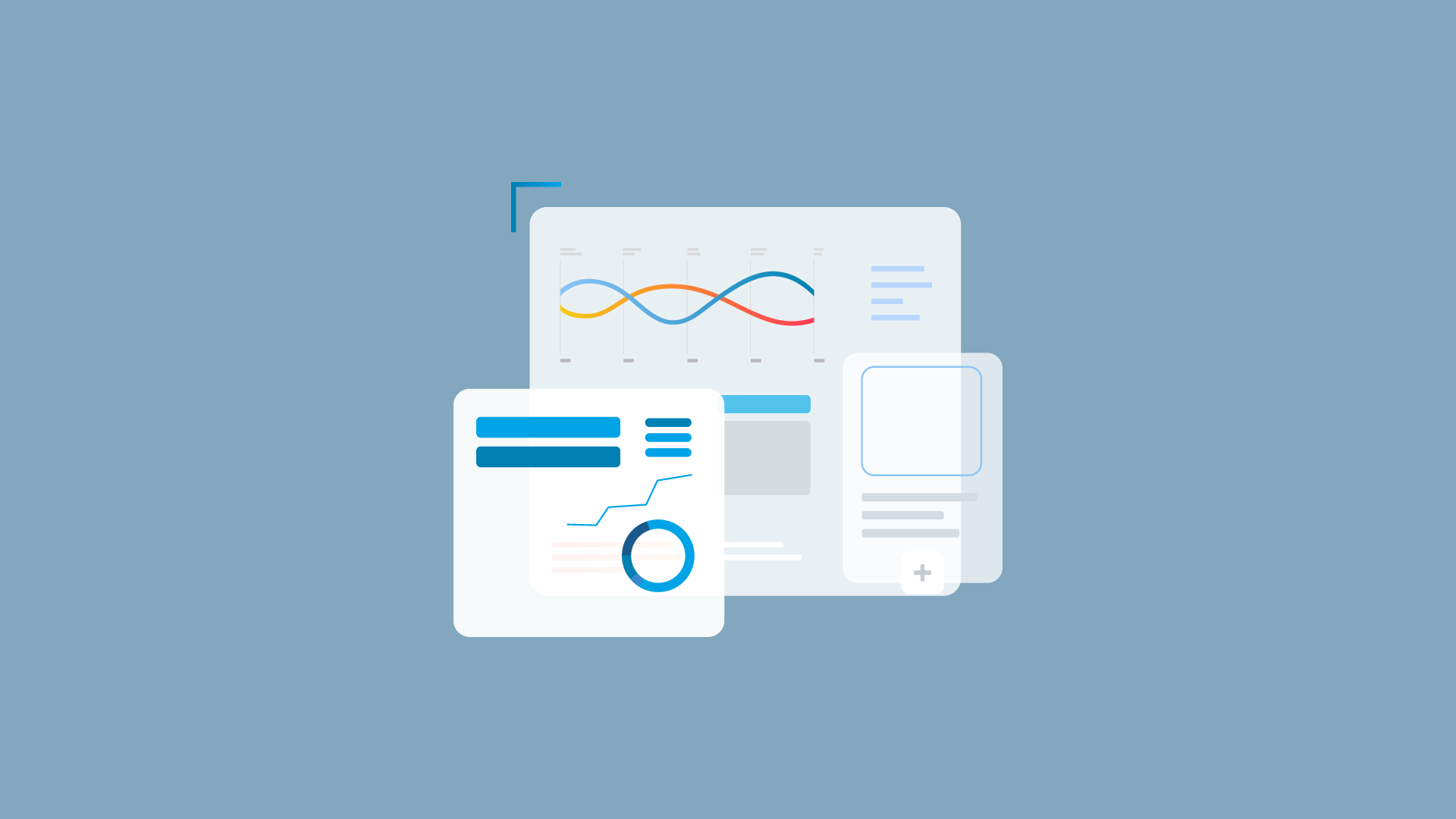Do you ever wonder how successful companies make decisions about their marketing strategies? It's not just a guessing game - they use data to make informed choices.
Marketing analytics is a powerful tool that businesses use to gather and analyze data about their customers and their behavior. With this information, they can make smarter decisions about how to reach and engage their target audience.
If you're a business owner or marketer, you can't afford to make decisions based on gut instinct alone. By harnessing the power of marketing analytics, you can gain valuable insights into your customers and make data-driven decisions that will help your business grow.
In this article, we'll explore how marketing analytics can empower your choices and help you achieve your business goals.
|
Marketing Analytics Marketing analytics is the act of monitoring, collecting, and analyzing data for evaluating market success and guiding future business decisions. |
What is Marketing Analytics?
Marketing analytics is the practice of measuring, managing, and analyzing marketing data to gain insights and make informed decisions that drive marketing effectiveness and business growth. It involves collecting and analyzing data from various marketing channels and touchpoints, such as your website, social media, email campaigns, and advertising platforms.
By using advanced analytical techniques and tools, marketing professionals can extract valuable information from the data to understand customer behavior, measure campaign performance, and optimize marketing strategies.
At its core, marketing analytics provides a quantitative and evidence-based approach to marketing. It goes beyond intuition and gut feelings, allowing marketers to rely on data-driven insights to make informed decisions.
The Benefits of Marketing Analytics
In today's data-driven world, marketing analytics has become a critical component of successful marketing strategies. Outlined below are several benefits of incorporating marketing analytics into your strategy:
1. Enhance Marketing Performance
Marketing analytics is a powerful tool that enables you to optimize your marketing campaigns and boost performance. By analyzing data, you can gain valuable insights into campaign effectiveness, audience engagement, and conversion rates.
With this information, you can identify areas for improvement and optimization, allowing you to refine your strategies for better results.
According to a survey by Forbes, companies that use data-driven marketing are six times more likely to achieve year-over-year profit growth.
Through data-driven decision-making, you can make informed adjustments to your marketing efforts, ensuring that you allocate resources effectively and target the right audience segments. By leveraging marketing analytics, you can measure and track key performance metrics, such as click-through rates, conversion rates, and customer acquisition costs.
This enables you to make data-backed decisions, leading to more efficient and impactful campaigns.
2. Boosted ROI
Marketing analytics plays a pivotal role in boosting ROI by enabling you to make informed decisions that maximize the return on your marketing investments.
By analyzing attribution models, customer journey data, and campaign performance metrics, you gain visibility into the effectiveness of your marketing touchpoints. This knowledge allows you to allocate your budget more strategically and focus on the initiatives that generate the highest ROI.
Research supports the positive impact of marketing analytics on ROI. According to McKinsey, companies that extensively use data analytics in their marketing achieve a 15-20% increase in marketing ROI compared to their peers.
This underscores the significant value that marketing analytics brings to driving measurable returns on your marketing investments.
3. Deepen Customer Understanding
Marketing analytics goes beyond surface-level customer information and allows you to gain a deeper understanding of your audience. By analyzing data from various touchpoints, you can uncover valuable insights into customer behavior, preferences, and needs.
With marketing analytics, you can track and measure customer interactions with your brand across different channels and platforms. This data helps you identify patterns and trends, allowing you to understand how customers engage with your marketing efforts and make purchasing decisions.
According to a study by Salesforce, 52% of consumers are likely to switch brands if a company doesn't personalize its communications. Marketing analytics empowers you to deliver the personalized experiences that customers crave.
4. Target Audience Segmentation
Marketing analytics plays a crucial role in effective target audience segmentation. By analyzing data and identifying distinct customer segments, you can tailor your marketing messages and content to resonate with each group's specific needs and preferences.
This level of personalization drives higher engagement and conversion rates.
For example, if you operate an e-commerce business, you can segment your audience based on factors such as age, location, purchase history, and browsing behavior.
Segmentation allows you to deliver highly targeted marketing campaigns that speak directly to the needs and interests of each segment. According to a study by Evergage, 72% of marketers reported seeing improved customer engagement and conversion rates through personalized and targeted campaigns.
5. Improve Marketing Attribution
Marketing attribution is the process of identifying and assigning value to the various marketing touchpoints that contribute to a conversion or sale. Marketing analytics plays a crucial role in improving attribution accuracy, allowing you to understand the impact of each marketing channel and campaign on your overall business goals.
According to a study by Google, companies that effectively measure and optimize marketing attribution experienced a 15-30% increase in marketing ROI.
Accurate marketing attribution helps you make informed decisions about budget allocation, campaign optimization, and resource allocation. For example, you can identify underperforming channels or campaigns and reallocate resources to more effective strategies.
With marketing analytics, you can track and analyze customer touchpoints across multiple channels and devices. This data provides valuable insights into the customer journey, highlighting the key interactions that lead to conversions. By understanding the effectiveness of each touchpoint, you can allocate your marketing budget and resources more effectively.
6. Predictive Analytics for Strategic Planning
One of the powerful capabilities of marketing analytics is its ability to leverage predictive analytics for strategic planning. Predictive analytics uses historical data and statistical algorithms to forecast future trends, customer behavior, and market dynamics.
By harnessing this predictive power, marketing professionals can make data-driven decisions and shape their strategies for long-term success.
According to a study by Forrester Research, companies that adopt predictive analytics experience a 10% increase in revenue and a 10% reduction in overall marketing spend. This demonstrates the significant impact that predictive analytics can have on business outcomes and financial performance.
Harnessing the power of predictive analytics gives you a competitive edge and positions you for success.
7. Enhance Marketing-Marketing Alignment
Effective alignment between marketing and other departments within an organization is crucial for achieving business objectives and driving growth. Marketing analytics plays a key role in fostering collaboration and alignment between marketing and other teams, such as sales and product development.
By leveraging marketing analytics, you can bridge the gap between marketing and sales teams, enabling them to work cohesively toward common goals. Analytics provides insights into customer behavior, preferences, and conversion patterns, which can be shared with the sales team to enhance lead nurturing and conversion efforts.
This alignment leads to better coordination, improved communication, and increased efficiency in the buyer's journey. A study by Aberdeen Group found that companies with strong marketing and sales alignment achieve 20% annual revenue growth, compared to a 4% decline in companies with poor alignment.
8. Drive Effective Content Marketing Strategies
Content marketing plays a pivotal role in engaging and nurturing audiences, and marketing analytics provides invaluable insights to drive effective content strategies. By leveraging analytics, marketing professionals can analyze content performance, identify audience preferences, and optimize their content marketing efforts.
According to Content Marketing Institute, 83% of marketers use analytics to measure content performance and effectiveness. Furthermore, 81% of B2B marketers who achieve high levels of content marketing success attribute their success to creating content based on specific points of their buyer's journey.
This data-driven approach empowers you to create high-performing content, improve engagement, and drive meaningful interactions with your target audience.
9. Optimize User Experience
Delivering a seamless and personalized user experience is crucial for attracting and retaining customers. In today's digital landscape, marketing analytics plays a pivotal role in optimizing the user experience across various touchpoints.
According to a survey by Econsultancy, 82% of companies agree that analytics has significantly improved their understanding of the customer journey.
By leveraging data insights on website navigation, conversion funnels, and user feedback, marketing professionals can identify pain points, improve usability, and create a frictionless experience.
10. Conversion Rate Optimization
Conversion rate optimization (CRO) is a crucial aspect of marketing analytics that focuses on improving the percentage of website visitors who take desired actions, such as making a purchase, filling out a form, or subscribing to a newsletter.
By leveraging data and insights from marketing analytics, you can implement strategies to increase conversion rates and drive better business outcomes.
One of the key benefits of CRO is the ability to make data-driven decisions. Marketing analytics tools allow you to track and analyze the results of A/B tests, providing insights into what resonates with your audience and driving continuous optimization.
Implementing CRO strategies can have a significant impact on your bottom line. According to a study, businesses that prioritize CRO see an average increase of 223% in their conversion rates.
This means that by optimizing your website and marketing campaigns based on data-driven insights, you can significantly improve your chances of turning visitors into customers and achieving your business goals.
11. Embrace Marketing Automation and Scalability
Marketing automation is a powerful tool that leverages marketing analytics to streamline and automate various marketing tasks, workflows, and processes. By implementing marketing automation, you can optimize your marketing efforts, enhance efficiency, and deliver personalized experiences to your audience at scale.
One of the key benefits of marketing automation is its ability to save time and resources. Repetitive and manual tasks such as email marketing, lead nurturing, and campaign management can be automated, freeing up your team's time to focus on high-value activities. According to a study by Nucleus Research, marketing automation drives a 14.5% increase in sales productivity and reduces marketing overhead by 12.2%.
Incorporating marketing automation into your marketing analytics strategy can significantly impact your business. According to a report by Invespcro, businesses that use marketing automation see an average revenue growth rate of 14.5% while reducing their marketing overhead by an average of 12.2%.
By embracing marketing automation, you can maximize the impact of your marketing activities, drive better results, and ultimately, grow your business.
12. Enhance Customer Retention and Customer Loyalty
In addition to acquiring new customers, retaining existing customers and fostering their loyalty is equally important for long-term business success. Marketing analytics plays a vital role in enhancing customer retention and building strong customer loyalty by providing valuable insights into customer behavior and preferences.
According to a study by Bain & Company, increasing customer retention rates by 5% can lead to a profit increase of 25% to 95%.
Marketing analytics empowers you to measure and track customer retention metrics, such as customer lifetime value (CLV) and churn rate. By monitoring these metrics over time, you can assess the effectiveness of your customer retention efforts and identify opportunities for improvement.
For example, you can use analytics to identify customers who are at risk of churning and implement targeted retention strategies to retain their business. This proactive retention approach can significantly impact your bottom line by reducing customer churn and increasing customer lifetime value.
Harness the Power of Analytics
Marketing analytics is a game-changer that empowers you to make data-driven decisions, optimize campaigns, and achieve remarkable results.
The extensive benefits of marketing analytics, from enhancing marketing performance and increasing ROI to deepening customer understanding and driving effective content marketing strategies, are indispensable in today's competitive landscape.
By embracing marketing analytics, you can unlock your full potential as a marketing professional, stay ahead of the competition, and drive remarkable business growth.
Ready to harness the power of marketing analytics and take your marketing strategies to new heights?
Partner with Fine Media, we are a trusted HubSpot Partner agency specializing in marketing analytics and strategy. With our expertise in leveraging data-driven insights and implementing cutting-edge marketing technologies, we can help you supercharge your marketing efforts and achieve outstanding results.
Contact Fine Media today to schedule a consultation and discover how marketing analytics can transform your marketing strategies.


